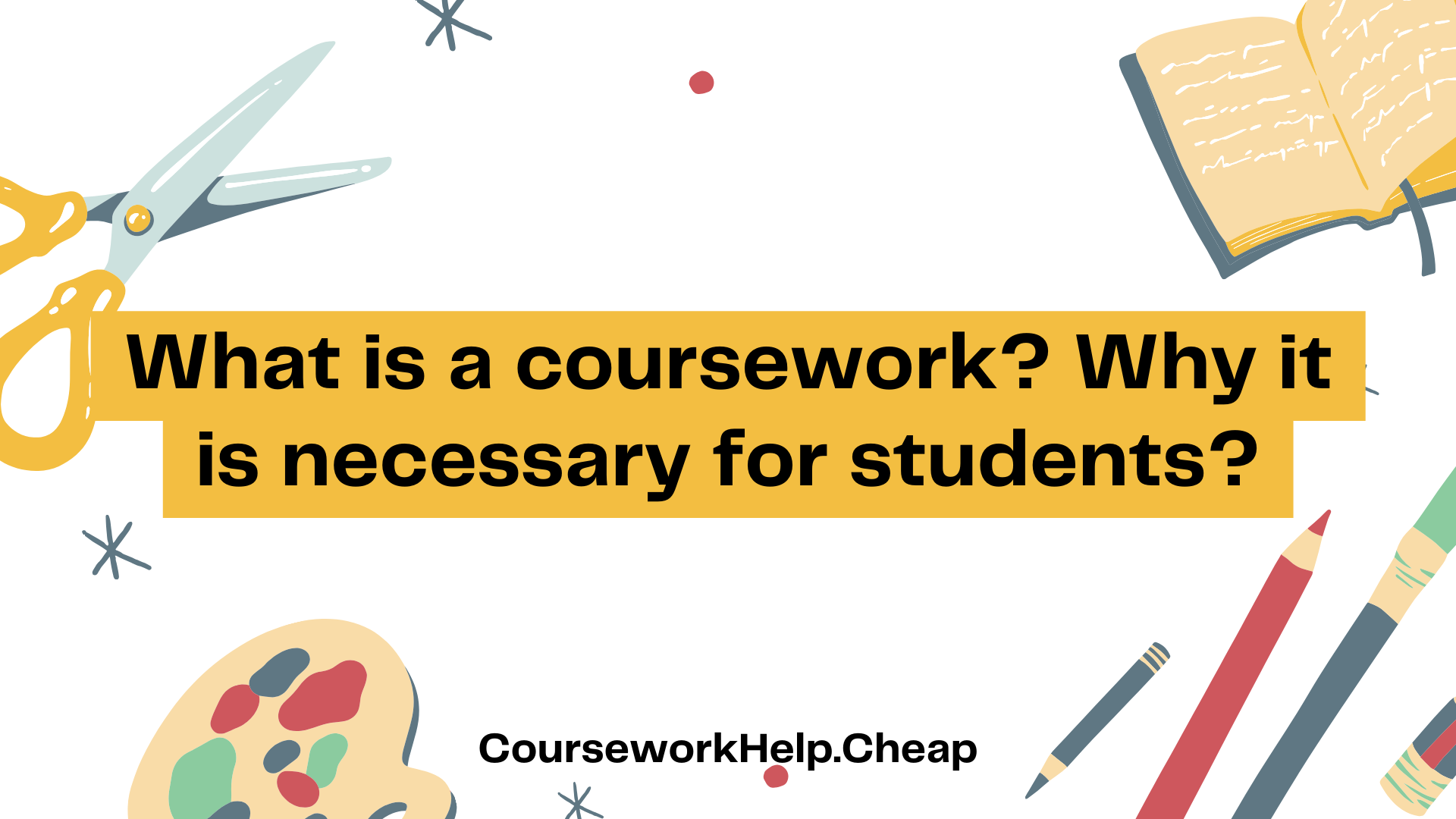
BUMPER OFFER
GET YOUR FIRST COURSEWORK (UPTO 5 PAGES) DONE IN JUST 5 DOLLARS

GET YOUR FIRST COURSEWORK (UPTO 5 PAGES) DONE IN JUST 5 DOLLARS
Posted By Admin @ 30/10/23

Coursework consists of academic assignments, projects, and practical exercises. These tasks test students' topic knowledge, critical thinking, and real-world application. Coursework includes essays, research papers, lab reports, group projects, and presentations. The final grade for a course or module is usually significant.
Coursework varies by educational level and discipline. High school and college coursework generally seek to teach critical principles in diverse topics. In graduate and professional degrees, coursework becomes increasingly specialized, allowing students to dive deeper into their field.
Coursework is crucial to students' academic growth. It serves numerous critical roles for a well-rounded education:
Coursework is designed to give pupils a complete and relevant education. Coursework is designed to foster active involvement with the subject topic, unlike tests that assess memorization. Through coursework, students can investigate, apply theory, and dig further into the topic. This helps individuals understand course concepts, principles, and theories.
Students also learn critical thinking and analysis throughout the coursework. Students learn to think critically, assess facts, and make well-reasoned judgments through completing difficult coursework. Critical thinking and synthesis are essential to turning pupils become autonomous thinkers who can use their knowledge in many circumstances.
Coursework develops communication, research, and problem-solving skills. Students must communicate clearly and convincingly in essays, papers, and projects. Coursework research helps students find reliable sources and assess information validity. Engaging in coursework assignments also develops problem-solving skills.
Our cheap coursework help service is designed to help students to achieve better grades at affordable prices.
Coursework complements quizzes, exams, and class participation in the educational curriculum. It aligns with course or module learning objectives to ensure students meet educational results.
The curriculum outlines what students should study and achieve in an academic program. Critical thinking, skill development, and relevant topics are carefully planned within coursework to meet these learning objectives. It implements the curriculum's aims and gives pupils varied opportunities to demonstrate their knowledge and skills.
Additionally, coursework evaluates students' performance and subject comprehension. By assessing students' coursework, teachers can adjust their methods and help them succeed.
Overall, coursework connects the curriculum to student learning. A planned and intentional approach to learning, skill development, and assessment supports curriculum goals. Through coursework, students actively engage with the curriculum and learn skills and knowledge that will help them in school and jobs.
Different types of coursework examine different parts of a student's learning and academic aptitude. Common coursework formats:
Students' grasp and application of information are assessed through practical and theoretical coursework.
Individual or group coursework has pros and cons.
Individual coursework fosters self-discipline and growth, while group-based coursework simulates real-world cooperative circumstances and prepares students for professional collaboration. The learning objectives, assignments, and student learning and development goals determine whether to use solo or group-based coursework.
In conclusion, the many coursework formats, such as essays, reports, projects, and presentations, allow teachers to evaluate students' skills and knowledge in different ways. Practical coursework applies knowledge in real-world situations, while theoretical coursework stresses understanding and intellectual mastery. Individual and group coursework gives pupils a well-rounded education and prepares them for academic and professional success.
Students profit most from coursework by expanding their subject expertise. Students can learn more about topics through coursework and projects than in lectures or exams. Research, analysis, and practice help pupils understand the subject. This improved comprehension helps them succeed academically and prepares them for further study and specialization.
Students must often think critically and analyze information from many perspectives for coursework. They must assess perspectives, find patterns, and develop logical conclusions. This improves pupils' critical thinking, allowing them to solve difficulties rationally. Complex coursework challenges students to think creatively, think independently, and make educated judgments, which are critical abilities for academic and real-world situations.
Students' research and information-gathering skills improve with coursework, especially research-based tasks. To find reliable information, students must search academic publications, books, online databases, and credible websites. Students' information literacy and research skills increase when they can identify trustworthy sources. These skills help them complete coursework and prepare them for lifelong study and research.
Students must manage their time to meet course deadlines. This coursework improves time management and organization. Students prioritize work, establish study plans, and organize time for research, writing, and revisions. Meeting coursework deadlines helps students acquire discipline and responsibility, which will benefit them in school and work.
Some coursework requirements, such as projects and creative assignments, let students show off their ingenuity. Encouraging kids to think creatively and communicate their views boosts academic pride. Creative coursework assignments foster ingenuity and allow for novel problem-solving. Creativity in coursework boosts student engagement and makes studying more fun.
Overall, coursework benefits go beyond grades and academic performance. It teaches critical thinking, research, time management, and creativity, which are useful throughout life. Students take responsibility for their academic advancement and build the skills and information they need for success by participating in coursework. Coursework helps students become well-rounded, contributing members of society.
In conclusion, coursework is crucial to student education. It connects theoretical knowledge to practical application, improving subject understanding, critical thinking, problem-solving, and research. Coursework helps students learn new subjects, improve their talents, and acquire life skills like time management, organization, and creativity. Diverse coursework formats provide a more complete assessment of student's academic growth. Coursework fosters self-reliance, teamwork, and effective communication to prepare students for academic and professional difficulties.
